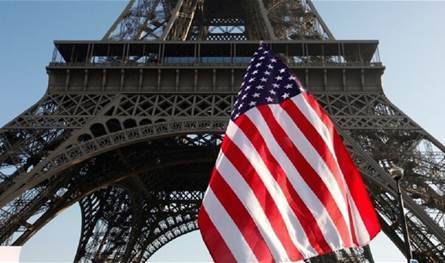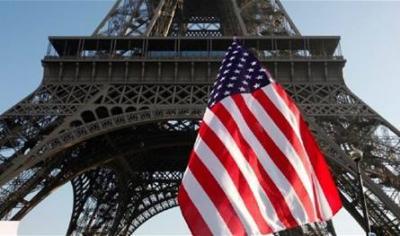Each time the political class in Lebanon believes that something is moving that could serve as a lifeline, even if temporarily, they discover that everything related to the Lebanese reality on the external level is interconnected in terms of position. There is no detachment or dissolution in any direction taken by any country regarding an approach to the Lebanese crisis, which is deemed the most serious since the establishment of Greater Lebanon. Lebanese officials and citizens always bet on the French role, preferring France to be the international agent in addressing the Lebanese crisis due to the deep cultural ties between Lebanon and France. French leadership does not wield the "big stick" in dealing with Lebanese issues but interacts with its leaders in a more favorable manner, always attempting to engage with each official according to their understanding, ambition, and intellect. As a result, France has managed to build good relations with all shades of the Lebanese spectrum, from the far right to the far left, including radical forces from a Western perspective.
This is not the first time that the French ambassador and international aid coordinator for Lebanon, Pierre Doukan, spends long days in Lebanese territory, investing countless hours listening to and explaining the origins of the crisis and ways to address it. It is also not the first time that Doukan encounters either a presumed or genuine "difficulty in understanding" among Lebanese leaders. He has reiterated the lesson, provided extensive explanations, and answered all inquiries; however, “the water still remains water.” Perhaps Doukan has reached the conclusion that this peculiar and astonishing breed of Lebanese leaders might only respond to a "big stick" approach similar to that used by the United States. Nevertheless, the French remain steadfastly supportive of the Lebanese people, who have proven through experience to be "resilient," with their youth excelling in French universities and the French job market, as well as in political roles, which continues to justify France's favorable behavior toward Lebanon.
The French initiative, as corroborated by several diplomatic and political sources, "coincides with the American movement in the region." It is clear that the French will not abandon Lebanon, and there is a strong desire to help. However, the Lebanese side does not open this door by helping itself first through decisions, procedures, and laws, the delay of which can be considered self-destructive. Sources indicate that there is a "French-American integration regarding the necessary conditions to initiate a rescue process in Lebanon," and the message conveyed to Lebanese leaders from both the American and French sides concerning a final agreement with the International Monetary Fund—regarded as the gateway to a solution—is explicit: there will be no facilitation without the ratification of reform laws (capital control, banking secrecy, restructuring banks, the budget, etc.) and the cessation of the dangerous hemorrhage in the electricity sector, which is central to the financial and economic collapse and the rising debt ratio. There is also a French-American synergy in linking the resumption of negotiations with the IMF to the approval and implementation of laws and reforms. Hence, Lebanon is urged to expedite their ratification, with the timeframe being tight and not open-ended, not exceeding a few weeks. The sources express surprise at what some say about an implicit decision in dark rooms not to achieve anything before the end of President Michel Aoun’s term. However, the response from Aoun himself to envoys is that he will not back down until the last minute of his presidency, and everything said about him staying on and considering constitutional paths for remaining in power after his term is pure nonsense. He has candidly told everyone who inquires about it, especially diplomats and international envoys, that on October 31, he will leave the Baabda Palace, hoping to have elected a president to hand over the responsibilities of the presidency. Yet, this matter is not in Aoun's hands but rather in the hands of the parliament, the political forces, and the major parliamentary blocs. Therefore, sources call for "removing the issue of reform laws from internal political bickering and not linking it to the end of the president's term," as the element of time is fatal for Lebanon, and if procrastination continues, all doors will close against it.




